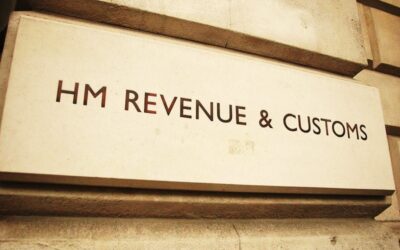- £1.13bn – revised estimate of error and fraud in 2020-21 (previously £338m)
- 24.4% – revised rate of error and fraud in SME scheme (previously 5.5%)
- £1.05bn – estimated error and fraud in 2022-23
HMRC have finally published initial data from their random enquiry programme (REP) into R&D tax relief claims which indicates significant underestimates in previous calculations of fraud and error in the schemes.
Data only enables them to restate 2020-21 figures at this stage (due to time lags in completing enquiries) but these suggest £1.13bn was lost to fraud and error in the schemes in that year, up from the £338m previously reported. The bulk of this problem arises within the scheme for small and medium sized enterprises (SMEs) which accounts for over £1bn of that loss. This equates to a staggering 24.4% rate of error and fraud in the SME scheme.
HMRC’s initial estimate of the most recent tax year (2022-23) is £1.05bn lost to error and fraud related to R&D tax schemes.
TaxWatch has been reporting on problems within the R&D claims industry for some time. In particular we have focused on the increasing number of largely unregulated advisers operating as ‘claims farms’. These have used hard sell sales techniques to persuade businesses to make claims for spending that at best pushes the boundaries of the rules and at worst clearly does not qualify. The advisers take a percentage cut of the benefit received so have an incentive to claim the largest amount possible. HMRC’s pay now, check later process means that money is paid out initially, resulting in firms claiming they have a 100% success rate. However, we are aware of cases where, when HMRC subsequently challenge a claim, the problem advisers leave their clients to deal with the enquiry, keeping the cut they have already taken.
Despite widespread discussion of these issues within the R&D claims industry, HMRC have been slow to tackle this problem. With almost 85,000 claims made in 2020-21and limited detail about each claim provided to HMRC then policing the schemes is a huge task. However, the failure to get a grip on this issue is likely to have fuelled abuse of the schemes as advisers’ confidence in their ability to get away with it increased.
Recent increases in compliance activity by HMRC have been widely reported. Unfortunately this is alongside recurring reports of lack of skilled and experienced staff to deal with what is complex legislation. TaxWatch has long identified concerns about resourcing of HMRC for compliance activity, particularly when skilled staff recover much more than they cost (HMRC report rates of return of around 18:1). An additional concern here is that poor handling of enquiries is discouraging genuine claimants from pursuing relief through these schemes. We are aware of one business that has actually moved its R&D facility outside the UK following frustrations at how their claim was being investigated. This could end up with the worst of both worlds whereby the businesses intended to be supported do not claim and those that don’t qualify walk away with the money.
HMRC has had its resources cut by large amounts over recent years while having to deal with significant extra responsibilities of Brexit and the Covid support schemes. The nature of the work means that new investigation resources cannot just be produced at short notice as it takes some years for people to be fully trained. The problem with R&D tax reliefs identified by this new data puts a spotlight on a more widespread problem of inadequate long term funding and planning of resources for HMRC. This requires attention before large amounts more money are lost.



